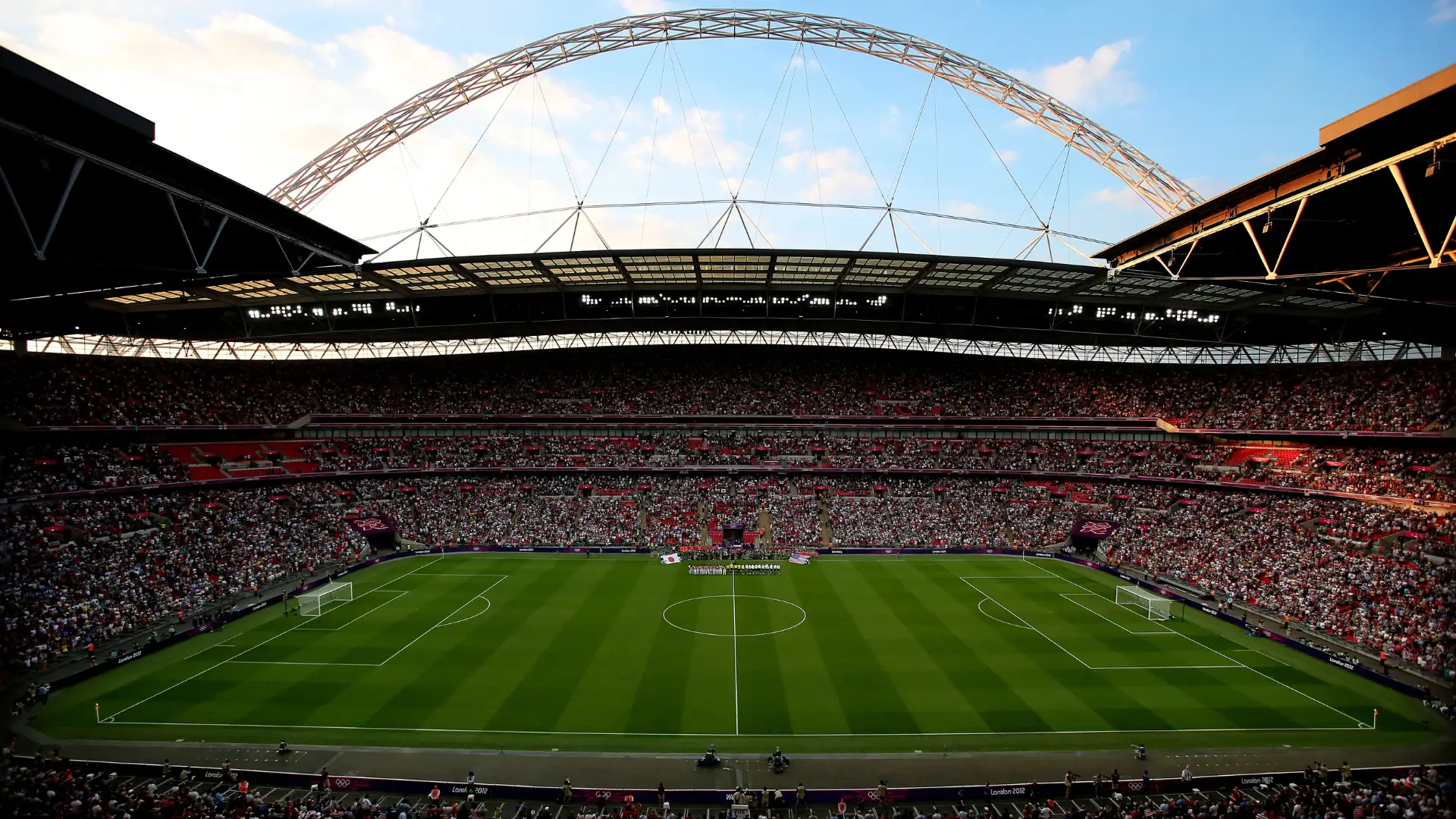Original reporting: The Athletic
In 2018, Shahid Khan — billionaire owner of Fulham FC and the NFL’s Jacksonville Jaguars — made a move that stunned the world of sport.
He attempted to buy Wembley Stadium.
Khan’s offer was ambitious: £600 million upfront and an additional £300 million in projected venue revenue streams. In other words, close to a £1 billion bid for England’s most iconic sporting venue — a sum nearly matching what it cost to build the new stadium when factoring in financing.
But the proposal wasn’t just about bricks and seats. It was a visionary pivot in sports venue ownership: a commercially-run, global-first model that would have freed the FA from venue operations and opened up Wembley to a more aggressively entrepreneurial future.
Wembley’s Financial Burden
What many fans don’t realize is that by 2018, Wembley had already drained £200 million from the FA’s books across two decades. It also required another £70 million in maintenance.
Despite its legendary status, Wembley was not a profit center — it was a struggling asset. With no permanent club tenant and only intermittent concerts and one-off sporting events, the stadium lacked the financial rhythm of weekly revenue.
Khan’s offer arrived not just with capital, but with clarity. He wasn’t planning to demolish or Americanize the venue. England matches, FA Cup finals, playoff thrillers, even rugby and boxing — all would stay. The FA would remain a tenant, not an operator, allowing it to redirect funds to grassroots football, where England’s pitches and facilities were—and still are—in desperate need of investment.
What Went Wrong?
Despite support from the FA board, UK government figures, and Sport England, the backlash was swift and emotional.
The opposition, led by vocal figures like Ken Bates, viewed the sale as unpatriotic. Wembley, they argued, wasn’t just an asset — it was a national treasure.
This wasn’t just a deal. It became a debate about sentiment vs strategy.
Ultimately, the FA Council — made up of 127 individuals representing both the professional and amateur game — failed to reach the required 60% approval threshold. The deal collapsed.
And with it, perhaps a new era of commercially savvy stadium ownership models in English football.
What This Teaches Us in Sports Business?
The failed Wembley sale highlights a crucial truth: football isn’t just a sport — it’s a powerful emotional product. But emotion without strategy is a growth inhibitor.
In a global sports economy increasingly driven by private equity, fan experiences, digital engagement, and data monetization, asset-light governing bodies must evolve their operational models. Stadiums can be reimagined not just as cathedrals of nostalgia but as agile, diversified platforms for revenue generation, audience building, and cultural export.
At 365247 Consulting, we help governing bodies, rights holders, venue owners, and investors navigate the space between legacy and leverage.
Whether you’re:
- Exploring venue privatization or monetization strategies
- Evaluating long-term asset-light operating models
- Seeking institutional investment in your sports IP
- Or structuring a proposal for cross-border acquisition or JV
—we can help. With a proven track record across football, cricket, and global sport, we sit at the intersection of strategy, emotion, and execution.
Are you a rights holder or investor thinking long-term? Book your introductory call here.
Let’s explore how we can make sport commercially future-proof.
Join the 365247 Community here.
📝 Original reporting by The Athletic.
IMAGE: Getty Images


